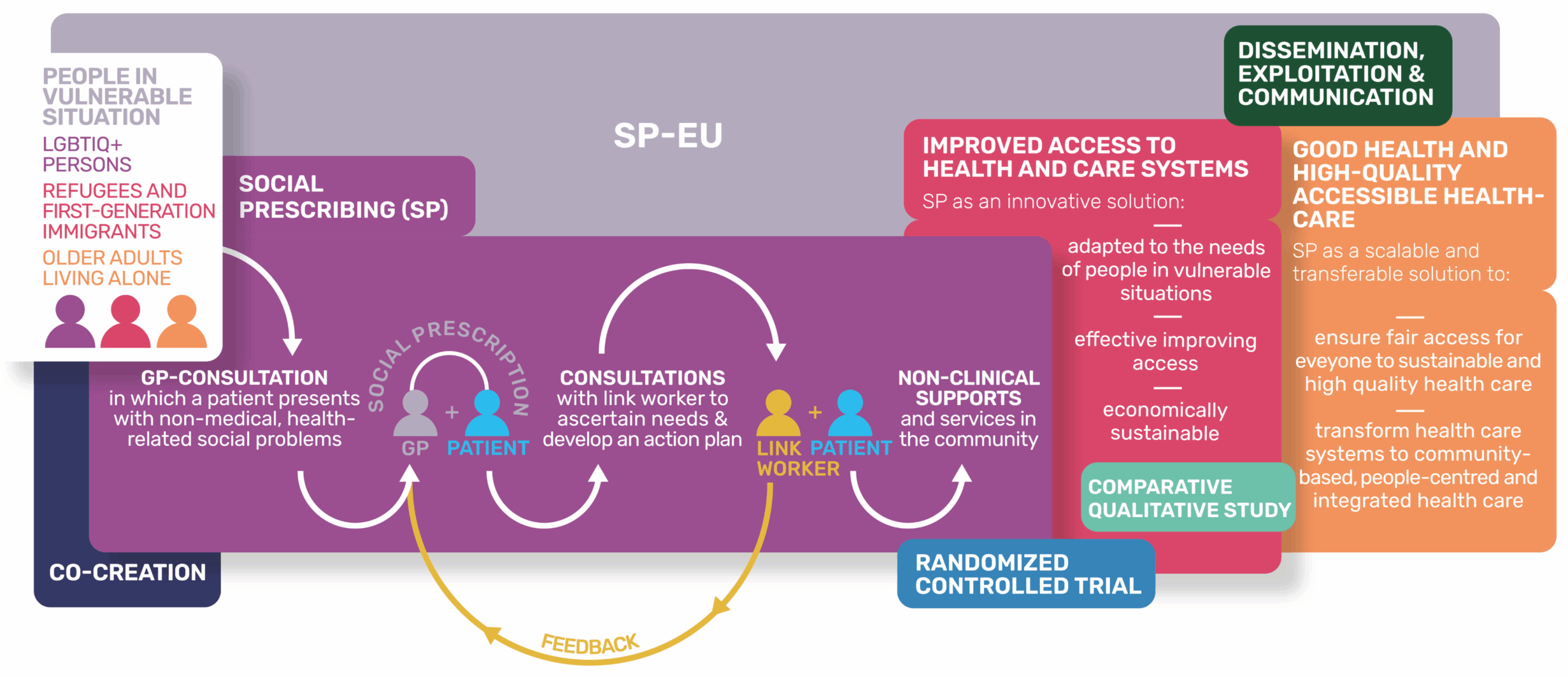Connecting health care to communities: Social Prescribing as Europe’s path to inclusive health
Social Prescribing (SP) is an innovative way of bridging the gap between health services and non-medical support. It is based on the understanding that many health issues are related to social, emotional or practical needs – like loneliness, isolation, or problems with debt or housing. These challenges cannot be solved by medicine or doctors alone. Through social prescribing, general practitioners (GPs) can refer patients to a link worker — someone who spends time getting to know the patient and helps them find the right community activities or services, such as exercise classes, social clubs, or advice services. This kind of support helps people build confidence, reduce isolation, and take control of their own health. Social prescribing helps to address barriers that people face in finding support in their community. It is an approach that integrates health care, social support, and strengthens community orientation. It can therefore mitigate the effects of the social determinants of health-on-health outcomes.
However, social prescribing has not yet been sufficiently tailored to the needs of people in vulnerable situations, and its effectiveness in improving their access to health and care services remains unknown.
The overall objective of SP-EU is to assess the potential for social prescribing to promote and improve access to health and care services for people in vulnerable situations, focusing on three primary target groups: LGBTIQ+ persons, refugees and first-generation immigrants, and older adults living alone. SP-EU follows a mixed-methods approach: SP adaptations will be co-created with the target groups, to adapt them to their specific needs and social contexts. A pragmatic randomised controlled trial will assess the effectiveness of the adapted SP to improve access by randomising 1,776 patients in eight European countries to receive SP or care as usual. A qualitative analysis in five European countries will explore enabling and limiting factors to the implementation of SP from different stakeholders’ perspectives. Additionally, we will communicate and disseminate results and translate them into real-life policy action.
SP-EU will enable health care systems to implement SP as a scalable, safe, cost-effective, and people-centred sustainable solution to provide equal access to care. Thus, SP-EU will transform European health care systems towards equitable, community-based, people-centred and integrated health care.

Overview of SP-EU’s strategy and workflow.